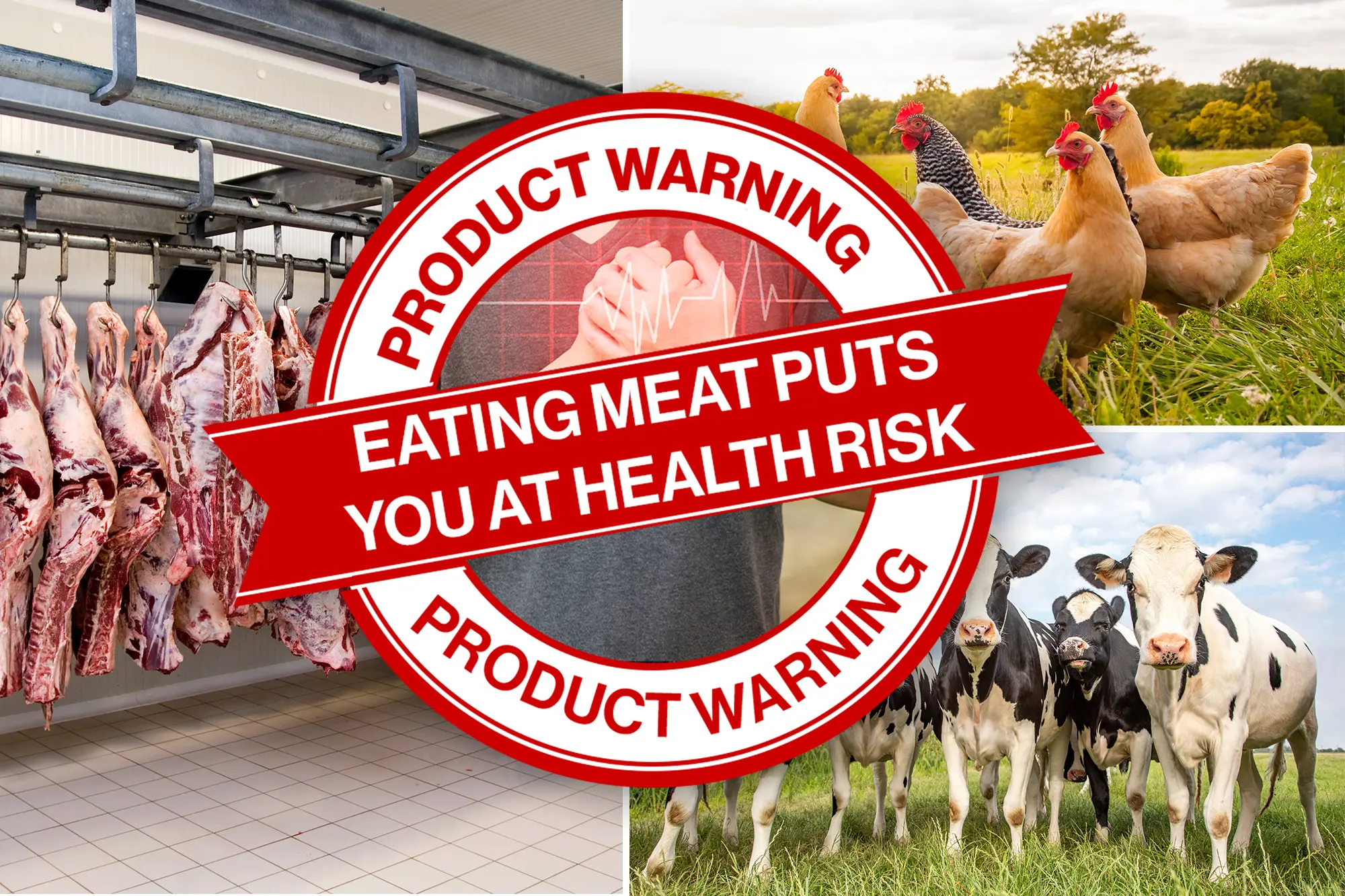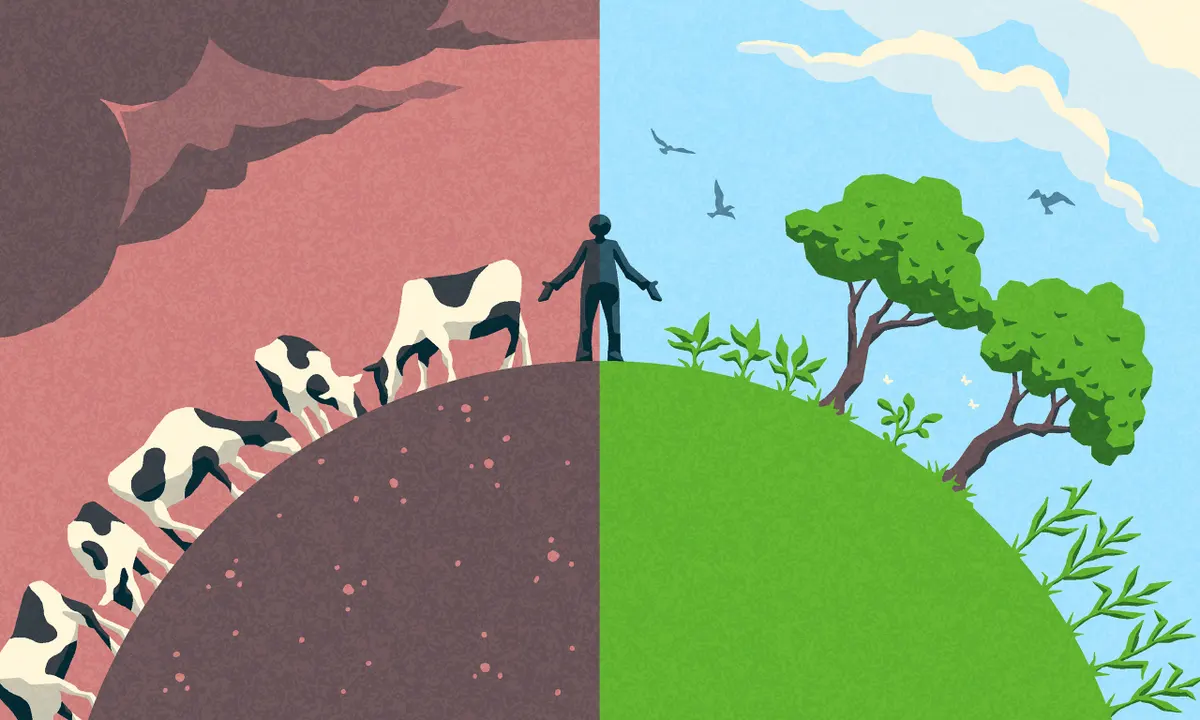The global shift toward reducing meat consumption is more than a dietary trend—it’s an economic opportunity with transformative potential. As concerns over climate change, public health, and ethical food production grow, cutting back on meat offers a pathway to significant cost savings, resource efficiency, and job creation in emerging industries like plant-based proteins and sustainable agriculture. Beyond mitigating environmental damage and reducing healthcare expenses tied to diet-related diseases, this transition unlocks innovation across the food sector while easing pressure on natural resources. By embracing this shift, societies can build a healthier economy and planet. The question isn’t just about feasibility—it’s about necessity for long-term prosperity
In recent years, there has been a growing global movement towards reducing meat consumption, driven by concerns about the environment, animal welfare, and personal health. While the idea of cutting back on meat may seem daunting for some, the potential economic benefits of such a shift cannot be ignored. As the demand for meat continues to rise, so does its impact on our planet and economy. In this article, we will explore the economic impact of reducing meat consumption and why it is not only necessary for the sustainability of our planet but also feasible for human society. From the cost savings on healthcare to the potential for job creation, we will examine the potential benefits and challenges of transitioning to a plant-based diet. By understanding the economic implications of reducing meat consumption, we can better assess the feasibility of this dietary shift and its potential impact on our society. Ultimately, the question is not whether we can afford to reduce meat consumption, but rather, can we afford not to?
Meat consumption and environmental sustainability.
Recent studies have shed light on the significant impact of meat consumption on environmental sustainability. The meat industry contributes to deforestation, greenhouse gas emissions, and water pollution, among other environmental issues. Livestock production requires vast amounts of land, water, and feed resources, leading to the destruction of forests and habitats. Additionally, the methane emissions from livestock contribute to climate change, making the meat industry a major contributor to greenhouse gas emissions. By reducing meat consumption and promoting plant-based diets, we can mitigate these environmental challenges and work towards a more sustainable future.
Economic benefits of reducing meat.

The shift towards reducing meat consumption not only brings about positive environmental impacts but also holds significant economic benefits. One of the key advantages is the potential cost savings in healthcare expenditures. High meat consumption has been linked to various health issues such as heart disease, obesity, and certain types of cancer. By reducing meat consumption and embracing more plant-based diets, individuals can improve their overall health and potentially reduce the burden on healthcare systems, leading to lower healthcare costs in the long run.
Additionally, reducing meat consumption can alleviate the strain on agricultural resources. Livestock production requires substantial amounts of land, water, and feed, which can put pressure on agricultural systems. By shifting towards plant-based diets, we can optimize the utilization of agricultural resources, potentially increasing food availability and reducing costs associated with livestock farming.
Moreover, the growth of the alternative protein industry presents significant economic opportunities. As consumer demand for plant-based and lab-grown meat alternatives continues to rise, the market for these products is expanding rapidly. This presents opportunities for job creation, innovation, and economic growth within the alternative protein sector. By embracing this shift, countries can position themselves as leaders in the growing market, fostering economic development and diversification.
In conclusion, reducing meat consumption not only contributes to environmental sustainability but also offers substantial economic benefits. From reducing healthcare costs to optimizing agricultural resources and capitalizing on the alternative protein market, embracing a shift towards plant-based diets can lead to a more prosperous and sustainable future for human society.
Decreasing demand for animal products.
Furthermore, the decreasing demand for animal products has the potential to create new economic opportunities in the food industry. As consumer preferences shift towards plant-based alternatives, there is an increasing market for innovative and sustainable plant-based products. This opens doors for entrepreneurs and businesses to develop and offer a wide range of plant-based options, such as plant-based meats, dairy alternatives, and plant-based protein supplements. These products not only cater to the growing demand for sustainable and ethical food choices but also have the potential to generate substantial revenue and create employment opportunities in the food sector.
Moreover, reducing reliance on animal products can lead to cost savings in the agricultural sector. Animal agriculture requires significant resources, including land, water, and feed. With decreasing demand for animal products, there would be a reduced need for extensive livestock farming, allowing for the repurposing of agricultural resources. This can lead to cost savings in terms of land management, water usage, and feed production, freeing up resources that can be redirected towards more sustainable and efficient agricultural practices. Additionally, the reduced environmental impact associated with animal agriculture, such as greenhouse gas emissions and water pollution, can result in cost savings related to environmental remediation and regulation compliance.
In conclusion, the decreasing demand for animal products not only has a positive impact on the environment and public health but also holds significant economic benefits. By reducing meat consumption and embracing plant-based alternatives, we can create new economic opportunities in the food industry, save costs in healthcare and agriculture, and promote a more sustainable and resilient food system. It is evident that transitioning towards a reduced reliance on animal products is not only feasible but also economically advantageous for human society.
Health consequences of meat consumption.

The excessive consumption of meat has been linked to various health consequences. Studies have shown that a high intake of red and processed meats is associated with an increased risk of chronic diseases, such as cardiovascular disease, type 2 diabetes, and certain types of cancer. The high saturated fat and cholesterol content in meat can contribute to the development of heart disease by raising blood cholesterol levels and promoting the buildup of plaque in the arteries. Additionally, processed meats, such as bacon, sausages, and deli meats, are often high in sodium and preservatives, which can increase the risk of high blood pressure and other health issues. By reducing meat consumption and incorporating more plant-based alternatives into our diets, individuals can improve their overall health and reduce the risk of these detrimental health conditions.
Potential cost savings for consumers.
In addition to the potential health benefits of reducing meat consumption, there are also significant potential cost savings for consumers. Plant-based alternatives to meat products, such as tofu, beans, lentils, and vegetables, tend to be more affordable and readily available. The cost of meat can be quite high, especially when considering the price of quality cuts and organic options. By incorporating more plant-based meals into their diets, consumers can stretch their food budgets, potentially saving money on grocery bills. Furthermore, reducing meat consumption can lead to reduced healthcare costs in the long run, as individuals may experience improved health outcomes and a decreased likelihood of developing chronic conditions associated with excessive meat consumption. These potential cost savings can provide individuals with a financial incentive to embrace a more plant-based diet, contributing to a positive economic impact on both a personal and societal level.
Alternative protein sources on the rise.
The shift towards alternative protein sources is becoming increasingly prominent in today’s society. With growing concerns about the environmental impact of meat production and the need for sustainable food systems, the demand for plant-based protein alternatives is on the rise. Companies are recognizing this trend and investing in the development of innovative products that mimic the taste and texture of traditional meat. Additionally, the advancement of technology has paved the way for the production of alternative protein sources such as cultured meat and insect-based products. These emerging options offer not only a more environmentally friendly and ethical choice but also a viable solution to address global food security challenges. As consumer awareness and acceptance continue to grow, alternative protein sources have the potential to revolutionize the food industry and pave the way for a more sustainable and feasible future for human society.
Support for small-scale farmers.
Supporting small-scale farmers is essential for building a sustainable and inclusive food system. These farmers play a crucial role in preserving biodiversity, promoting local economies, and ensuring food security in their communities. By investing in infrastructure, access to resources, and technical support, we can empower these farmers to thrive and contribute to a more resilient agricultural sector. Additionally, initiatives that promote direct market connections, such as farmers’ markets and community-supported agriculture, can help small-scale farmers gain fairer prices for their produce while fostering a sense of community and connection between producers and consumers. By supporting small-scale farmers, we not only contribute to the economic well-being of these individuals but also promote a more equitable and sustainable food system for everyone.
Promoting sustainable agriculture practices.
To further promote sustainable agriculture practices, it is crucial to invest in research and development of innovative farming techniques. This includes exploring alternative farming methods such as agroforestry, hydroponics, and vertical farming, which can help maximize land use efficiency and minimize environmental impact. By implementing precision agriculture technologies and data-driven approaches, farmers can optimize the use of resources such as water, fertilizers, and pesticides, reducing waste and minimizing the ecological footprint of agricultural activities. Furthermore, supporting education and training programs for farmers on sustainable practices can ensure the adoption of environmentally friendly techniques and promote the preservation of soil health and biodiversity. By actively promoting and incentivizing sustainable agriculture practices, we can not only mitigate the negative environmental consequences of conventional farming but also create a more resilient and sustainable food system for future generations.
Reducing greenhouse gas emissions.

To effectively reduce greenhouse gas emissions, it is essential to implement a comprehensive strategy that encompasses various sectors of society. One key area that warrants attention is the energy sector. Shifting towards renewable energy sources such as solar, wind, and hydro power can significantly decrease the reliance on fossil fuels and subsequently reduce carbon emissions. Additionally, improving energy efficiency in buildings and embracing sustainable transportation options such as electric vehicles can further contribute to the reduction of greenhouse gas emissions. Furthermore, implementing policies and regulations that promote energy conservation and incentivize the adoption of clean technologies can create a conducive environment for sustainable practices. By prioritizing the reduction of greenhouse gas emissions in all aspects of our society, we can not only mitigate the impacts of climate change but also pave the way for a more sustainable and resilient future.
Meat reduction as a global movement.

In recent years, there has been a growing global movement towards reducing meat consumption for various reasons, including environmental, health, and ethical concerns. This shift in dietary patterns is gaining traction as individuals and organizations recognize the significant impact that meat production has on greenhouse gas emissions, deforestation, and water usage. Moreover, studies have shown that excessive meat consumption can contribute to health issues such as heart disease, obesity, and certain types of cancer. As a result, governments, businesses, and individuals are exploring alternative dietary choices, such as plant-based diets or flexitarianism, which involve reducing meat consumption while incorporating more plant-based foods into daily meals. This global movement towards meat reduction presents an opportunity for economic growth and innovation, as the demand for plant-based alternatives and sustainable food options continues to rise. By embracing this shift, societies can not only improve their environmental footprint but also promote healthier lifestyles and create a more sustainable future for generations to come.
In today’s world, the idea of reducing meat consumption may seem daunting, but the potential economic benefits are significant. Not only can it lead to lower healthcare costs and a more sustainable environment, but it also has the potential to create new jobs and industries. While the transition towards a more plant-based diet may not happen overnight, it is a feasible and necessary step for the betterment of both our economy and society as a whole. By making small changes in our eating habits, we can make a big impact on the world around us.
FAQ
What are the potential economic benefits of reducing meat consumption on a large scale?
Reducing meat consumption on a large scale can have several potential economic benefits. Firstly, it can lead to cost savings in healthcare as a reduction in meat consumption is associated with a lower risk of chronic diseases like heart disease and certain types of cancer. This can result in decreased healthcare expenses. Secondly, a shift towards plant-based diets can reduce the demand for meat production, which is resource-intensive. This can lead to lower environmental costs, such as reducing water usage and greenhouse gas emissions. Additionally, the growth of the plant-based food industry can create new job opportunities and stimulate economic growth in the agricultural and food sectors.
How would reducing meat consumption affect the agriculture and livestock industries, and what economic adjustments would be necessary?
Reducing meat consumption would have significant impacts on the agriculture and livestock industries. As demand for meat decreases, there would likely be a decrease in the number of livestock raised for meat production. This would require farmers and ranchers to shift their focus to other agricultural activities or alternative sources of income. Additionally, there may be a need for economic adjustments, such as diversifying farm operations and investing in plant-based protein production. The transition could also lead to job losses in the meat industry, but it could create new opportunities in the plant-based food sector. Overall, reducing meat consumption would necessitate adaptation and restructuring within the agriculture and livestock industries.
Are there any studies or evidence that demonstrate the positive economic impact of reducing meat consumption in specific regions or countries?
Yes, there is evidence that reducing meat consumption can have a positive economic impact in specific regions or countries. Studies have shown that shifting towards plant-based diets can reduce healthcare costs associated with diet-related diseases, such as heart disease and certain types of cancer. Additionally, reducing meat consumption can lower environmental costs, such as greenhouse gas emissions and water usage. This can lead to savings in terms of mitigating climate change and preserving natural resources. Furthermore, promoting plant-based agriculture and alternative protein sources can create new job opportunities in the food industry and contribute to economic growth.
What are the potential economic costs or challenges associated with transitioning to a society with reduced meat consumption?
The potential economic costs or challenges associated with transitioning to a society with reduced meat consumption include the impact on the meat industry and related businesses, potential job losses in the industry, and the need for investment in alternative protein sources. Additionally, there may be challenges related to consumer acceptance and behavior change, as well as potential economic implications for countries heavily reliant on meat exports. However, there are also potential economic benefits, such as reduced healthcare costs associated with a healthier population and the growth of the alternative protein market. Overall, the economic costs and challenges will depend on the speed and scale of the transition and the strategies implemented to mitigate potential negative impacts.
How can governments and businesses incentivize and support the reduction of meat consumption to ensure a smooth economic transition?
Governments and businesses can incentivize and support the reduction of meat consumption by implementing policies that promote plant-based diets, such as offering tax incentives to companies that produce plant-based alternatives, subsidizing the cost of plant-based foods, and implementing public awareness campaigns about the environmental and health benefits of reducing meat consumption. Additionally, governments can invest in research and development for sustainable and affordable meat alternatives, provide funding and resources to farmers transitioning from animal agriculture to plant-based farming, and support initiatives that promote sustainable farming practices. By creating a supportive environment and offering economic incentives, governments and businesses can facilitate a smooth economic transition towards reduced meat consumption.



